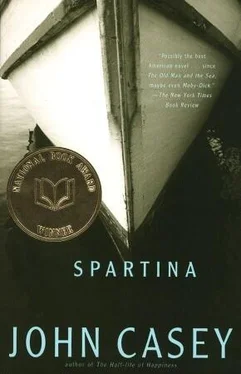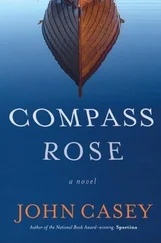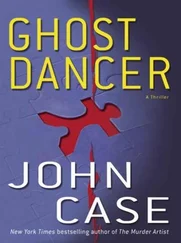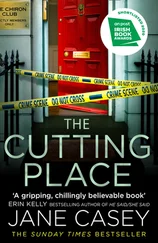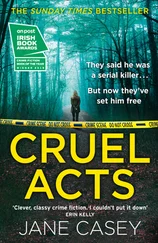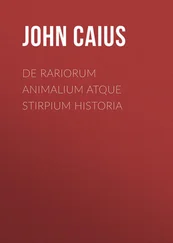When he hit the pond he stood up. The upper part of the pond was full of hummocks, channels winding all over the place. Some of them went all the way to the open part of the pond, some of them dead-ended in little backwaters. He eased back on the throttle and heard the whine of the other boat.
He said to Parker, “Whoever they are, they’re in our creek.”
He headed west, took a turn into a backwater. Parker, crouched in the bow, said, “Oh shit. It’s a dead end.”
Dick said, “No, it’s good. Get out. We’ll pull her out.” He tilted the outboard up, went forward past Parker and up over the bow. Parker climbed out, and they heaved the skiff’s bow up, their boots pushing into the stiff mud. They slid her along on her skeg for twenty feet. Dick went back with an oar and pried loose the edge of the bank with the skeg mark running up it. It plopped into the water. He tried to prop up the spartina they’d flattened. He got some of it up, held some more up by pushing the length of the oar broadside against the base of the stems.
The motor whined by, went down a channel to the open pond. It banked sharply as it suddenly slowed, coughed, and took up a lower note. Picked up again, hummed around the pond.
Parker crept up beside Dick. Dick told him to push up some more grass.
They lay there. The humming moved up a note. Parker said, “How long you planning to stay here?”
Dick thought. He said, “There’s a channel between this pond and Ninigret Pond. I was planning to go through to Ninigret and then out the Charlestown breachway. But there’s a bridge over the channel. All they have to do is put one guy there to cover that, then they come back this way in their boat.”
“What about we go back the way we came.”
Dick thought about that. He said, “What did you see in Mary’s parking lot? What made you come down?”
“There was this car,” Parker said. “You know, looked too ordinary.”
“If that’s a cop, he heard our motor. He can just come down and stand by the creek. We ought to … Let me think.”
In his mind, Dick could see the marshes — one marsh really, laced with creeks and dotted with ponds, divided by fingers of high ground. The whole marsh fringed by beach to the south. The chart of the problem was clear to him, but not the way out, not yet.
But what he saw more insistently, as he pictured the marsh from above, was the hummock where Parker and he lay beside the skiff. Himself dissolving. Not dissolving with fear, though he admitted that possibility. He could put that off for the moment. What was dissolving was something more important than nerve. It wasn’t that there was that much wrong with bringing in some coke, Captain Parker’s Pep Pills for Sleepy Sailors. But there was something wrong with how he’d got there. And something else in him was being leached into the mud. It wasn’t Parker’s fault. This stuff didn’t do Parker any harm, it was part of Parker’s way of cutting along through Parker’s kind of life. But Dick saw himself leaking into the hummock.
He got to his knees and peered over the spartina. The whaler, or at least a white runabout, was in the middle of the pond, less than a half-mile away, scanning with a spotlight. The beam didn’t reach the edges. The whaler cut toward the edge of the pond and swung in an arc. Dick ducked back down.
He said to Parker, “We’ll go down the east side of the pond. There’s no way out the southeast corner, so they’ll be paying more attention to the creeks up here and the one into Ninigret. There’s a couple of little islands we can keep behind. Then it gets real grassy just behind the beach. We duck in there and wait till we hear them up at this end, then we carry the skiff up the back of the beach and on down the front. Launch her off the beach.”
“My arm’s still kind of weak,” Parker said. “How far we have to haul her?”
“Maybe thirty yards up to the top of the dunes. Across a gravel road. Then maybe two hundred yards to the water. You won’t need your bad arm, we’ll put a line around your shoulder. All you have to use your arm for is to dump them whelks.”
Parker grunted. He got up and took a look down the pond. “What are we waiting for?”
“Let them go round the pond a couple of times,” Dick said. “Let them get a little bored. If we’re lucky, they’ll wonder if we didn’t get in to Ninigret. They’ll have to take a look by the Charlestown breachway.”
“Or they may come back in here,” Parker said.
“It’d be good if they did that once before we start. Get it out of their system.”
They lay still.
Dick said, “How we going to meet up with Keith?”
“He’s just running her back and forth, half-hour southeast, half-hour northwest.”
“Jesus,” Dick said, “it ain’t going to be easy finding him.”
Dick turned on his side. The sky was cloudier. He was about to get up for another look when he heard the motor coming nearer. He did a little more housework on the spartina and lay down again. No point in even thinking of running off on foot — the skiff was in his name, registration number painted either side of the bow.
The whaler went by the mouth of the backwater at quarter-speed. Slowed down. Went into reverse with a clunk, gave a little dentist-drill whine as the prop pulled back and out of the water. The beam of light swung round. Dick put his face flat into the grass and mud. He was wet all down his front, thought he might have pissed himself. He listened for the shift to forward. His leg jumped once and he felt Parker’s hand clamp on it. He listened. A shypoke called one hoarse note way off to the west.
A man’s voice—“What the fuck’s that?”
A woman’s voice—“A bittern.”
“A what?”
“A kind of little heron.” It was Elsie. “They’re also called shypokes. You just about never see them, but you can hear them a mile away.” Elsie croaked like a shypoke.
“Yeah, great. You know where we are?”
The shypoke croaked back.
Another man laughed. Two men. And Elsie.
The first man said, “Cut it out, Buttrick. You know where we are?”
“Yes. Do you know where we want to go?”
“Go back to that bridge.”
“The cut into Ninigret?”
“Yeah. Let’s go.”
Clunk into forward. The motor went slow ahead, sounded like a kid blowing into soda with a straw. Parker let go his leg. The whaler sped up, got up onto a plane, headed south into a clear channel to the pond.
They slid the skiff back into the water. Dick poled it out into the creek, rowed to the east bank of the pond. He could see the whaler’s spotlight playing along the west bank. There were a couple of deep coves there would keep them busy for a bit. He leaned into the oars. They creaked, but the skiff was downwind of the whaler. There was a stretch of hard land that ran down the east bank for a quarter-mile, ended in a point with a little island off it to the south. He pulled as hard as he could without splashing. The skeg left a thin wake of phosphorescent plankton; each stroke of the oars left a pair of pale-green globes in the water.
Dick looked over his shoulder, picked out the gap between the point and the island, pulled into it and around to the lee of the island. Rested. The motor of the whaler was still humming low to the west.
It was only a hundred yards to the back of the beach. He rowed easy at the end, slid into the eel grass. There were some bushes along the shore. They pulled the skiff in among them. Above the bushes there was riprap laid along the steep bank. Dick climbed up to look up and down the gravel road along the crest of the dunes.
Dick rigged a loop of the bow line over Parker’s shoulder. He hoisted the stern, one arm around the outboard. He couldn’t see the cracks between the flat pieces of riprap, had to feel each step. The bow thudded onto a rock. Parker undid himself from the loop, turned backward, and hauled with one hand. He stopped to rest.
Читать дальше
